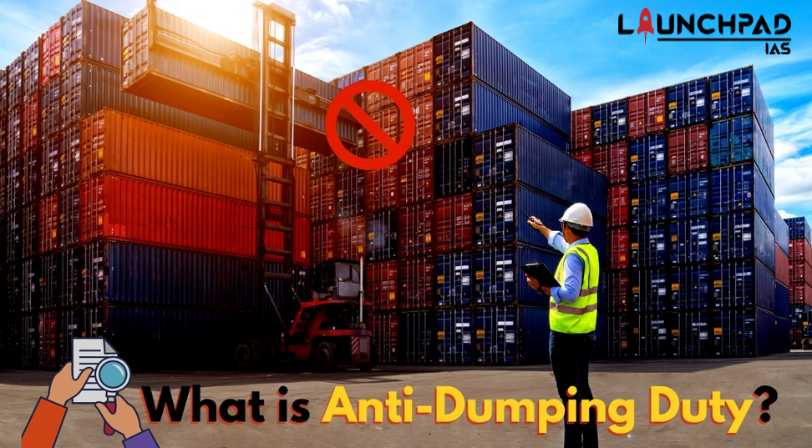Dumping
- Dumping is said to occur when the goods are exported by a country to another country at a price lower than the price it normally charges in its own home market.
- This is an unfair trade practice that can have a distortive effect on international trade.
Objective
- The imposition of Anti-dumping duty is a measure to rectify the situation arising out of the dumping of goods and its trade distortive effect.
- In the long term, anti-dumping duties can reduce the international competition of domestic companies producing similar goods.
- It is a protectionist tariff that a domestic government imposes on imports that it believes are priced below fair market value.
- The use of anti-dumping measures as an instrument of fair competition is permitted by the World Trade Organisation.
Different from Countervailing Duties
ADD is a customs duty on imports providing protection against the dumping of goods at prices substantially lower than the normal value whereas Countervailing duty is a customs duty on goods that have received government subsidies in the originating or exporting country.
WTO’s Provisions Related to Anti-Dumping Duty
- Validity: An anti-dumping duty is valid for five years from the date of imposition unless revoked earlier.
- Sunset Review: It can be extended for a further period of five years through a sunset or expiry review investigation.
- A Sunset review/ expiry review is an evaluation of the need for the continued existence of a program or an agency. It allows for an assessment of the effectiveness and performance of the program or agency.
- Such a review can be initiated suo moto or based on a duly substantiated request received from or on behalf of the domestic industry.
Who imposes countervailing measures in India?
The countervailing measures in India are administered by the Directorate General of Trade Remedies under the Commerce and Industry Ministry.
Directorate General of Trade Remedies
- It is the apex national authority under the Ministry of Commerce and Industry for administering all trade remedial measures including anti-dumping, countervailing duties, and safeguard measures.
- It provides trade defence support to the domestic industry and exporters in dealing with increasing instances of trade remedy investigations instituted against them by other countries.


